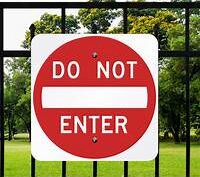Reality Check:
If you blinked, you might’ve missed it—but something quietly outrageous happened during the opening of the Eastridge Hills HOA Board Meeting on March 11, 2025. President William Wesley, in his usual “I’m in charge here” tone, announced that public comment would take place at the beginning of the meeting. So far, so good. It’s standard procedure to allow residents three minutes each to speak, and frankly, it’s one of the few parts of these meetings that feels remotely democratic.
Now, if you’ve been to any past board meetings (bless your patience), you’d know that public comment traditionally comes near the end, which at least lets folks respond to actual agenda items. But in this case, it was moved to the front—probably because the board anticipated what was coming. Spoiler alert: a curb controversy was brewing.
But Here’s the Rub:
Wesley didn’t just rearrange the meeting—he tried to rewrite the rules. He added a little “disclaimer” to public comment, saying something along the lines of: “If someone else has already brought up the topic and there’s nothing substantial to add, I might just want to table that…”
Hold up. That’s not just a breach of etiquette—it’s a breach of law.
Under the California Open Meeting Act (Civil Code 4900–4955), HOA members have a protected right to speak during meetings. There are no pre-screening conditions, no filters, and certainly no presidential vetoes on what counts as “substantial.” Wesley’s move to muzzle redundancy—ironically—was a stunningly redundant example of the board’s ongoing struggle with transparency and community engagement.
The Consequences:
The board’s comment crackdown couldn’t have come at a worse time. Nearly twenty residents showed up to voice concerns about a “Red Paint” proposal—likely related to changes to street curbs and parking. Normally, you’d be lucky to get one lone soul at these meetings. But the color red must’ve struck a nerve.
Instead of welcoming the rare and beautiful sight of civic participation, the board defaulted to its usual routine: control the room, silence dissent, and hope everyone forgets by next month. Unfortunately for them, we’ve all got long memories—and, apparently, a healthy distrust of red paint.
Call to Action:
This was the time that our Priscilla (Management Company) should have stood up and corrected the situation. So, it’s time to stop letting leadership brush off our rights like a bad coat of primer. Public comment isn’t a privilege—it’s a guarantee. And the law doesn’t care if it makes meetings longer or topics repetitive. If twenty people want to say, “No Red Paint,” then the board gets to hear “No Red Paint” twenty times.
Let’s stay vigilant, stay vocal, and maybe bring some popcorn to the next meeting. Democracy might be messy—but at least it’s never boring.







